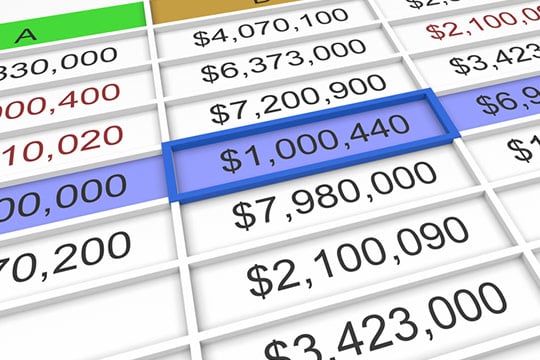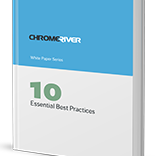 We recently ran a webinar in conjunction with Vendorin, which discussed some of the challenges faced by CFOs with their accounts payables processes. As part of the webinar, we asked some questions to gauge the current state of invoice automation, and some of the bigger issues currently impacting the function. The upshot of our findings is that, although technology plays a significantly greater role in AP than just a few years ago, there’s still plenty of opportunity to improve efficiency.
We recently ran a webinar in conjunction with Vendorin, which discussed some of the challenges faced by CFOs with their accounts payables processes. As part of the webinar, we asked some questions to gauge the current state of invoice automation, and some of the bigger issues currently impacting the function. The upshot of our findings is that, although technology plays a significantly greater role in AP than just a few years ago, there’s still plenty of opportunity to improve efficiency.
The survey showed that only 60% of organizations reported having implemented any type of automated invoice processing software, and while technology is used slightly more often at the beginning of the process (30% have implemented eInvoicing or invoice scanning / imaging) or at the end of the process (30% generate electronic payments), comprehensive process automation remains uncommon. In fact, just 23% have implemented online workflow to approve invoices or resolve invoice exceptions.
This lack of automation manifests itself in several ways, many of which directly increase the cost to process an invoice from receipt through payment. Six in 10 respondents also say that more than half of their payments are still made with paper checks, even though the cost of this can be 10 times that of electronic payments. The lack of automation further compounds these cost issues by preventing these companies from taking advantage of early payment discounts – almost a quarter of companies (24%) say that they are unable to take advantage of these discounts as a result of slow approvals. Given that a 2/10 net 30 early payment discount can generate the equivalent of a 36% rate of return, the implications for large organizations with millions or even billions of dollars in invoice payments can be significant.
Another issue that paper checks present is the increased risk of fraud. Eighteen percent of respondents report that their organization has been the victim of check fraud, and given that the Association of Financial Professionals reports the average incidence of check fraud costs an organization in excess of $20,000, eliminating one instance of fraud like this alone goes a long way to offsetting what it takes to implementation an electronic payment solution.
Even with real and potential cost and risk implications of cutting paper checks, transition away from them remains an opportunity for many. Just one-in-six respondents anticipate migrating to electronic payments in the next year. But why is this? The most often cited response is that it is a challenge to support a variety of remittance advice formats. This challenge, however, can now be easily addressed. Implementing an online platform for invoice automation enables AP teams to easily review, approve and administer all vendor payments regardless of payment type or financial institution. These electronic payments can then be managed through the platform – all that is required is enabling vendors to receive these electronic payments through the platform. In fact, there are even processes and tools that can be used to do this, without you needing to commit large time resources on your part.
Automating your invoice process needn’t be a headache. If you’d like to hear more about how you can overcome your AP challenges, you can watch a recording of the webinar here. To find out how much money your organization could save by automating its payments process with Chrome River PAYMENTS Powered by Vendorin, visit us online or call 888 781 0088 to speak with me or another of our payments experts.
Subscribe
Latest Posts
Posts by Category
I just love the Chrome River application. I could probably sell it! Finance Administrative Coordinator Law Firm, 800 Employees
Can’t we just move year-end, so that we can roll out Chrome River sooner!? Financial Systems Director Law Firm, 300 Employees

Comments